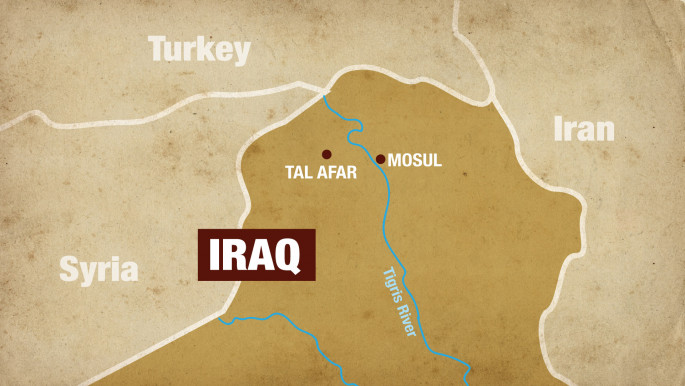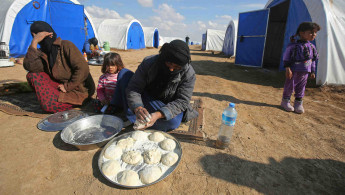Humanitarian crisis looms in shadow of Tal Afar battle
Iraqi forces have made gains in their efforts to retake Tal Afar, yet civilians within the city are suffering as a humanitarian crisis emerges from the conflict.
The Islamic State group captured Tal Afar in 2014, but the US-supported campaign to rout them has pushed them into the confines of the city centre.
Concerns about endangering civilians grew among humanitarian organisations long before the campaign started. Now, aid agencies have directly stated the need to protect those still trapped in the city, along with those who managed to escape.
On Monday, Lise Grande, the top UN humanitarian official in Iraq, said that more than 30,000 civilians had evacuated the city, while dozens of families were preparing to leave.
"Thousands of people are fleeing Tal Afar for their safety," said Grande. "Families are trekking for 10 to 20 hours in extreme heat to reach mustering points. They are arriving exhausted and dehydrated.
"Food and water are running out, and people lack the basic necessities to survive," she said, highlighting the need to ensure the safety of civilians in Tal Afar and to avoid civilian casualties in the campaign.
 |
On Tuesday, the UNHCR, the UN agency for refugees, gave further information about the conditions of those displaced from the conflict, and the responsive actions the agency is taking.
IS has in the past used civilians as human shields, and fears are growing this will be seen again in Tal Afar. IS has also carried out insurgent revenge attacks in territory it has lost.
Yet those who leave still face grave danger and complications, in almost unbearable conditions. UNHCR spokesperson Rula Amin told The New Arab: "On one hand, there is the risk of being shot by extremist groups for attempting to flee, sniper fire from the extremist elements and the risk of the victim-activated anti-personnel mines.
"Even when the families manage to flee, they end walking for hours in 50 degrees heat before they reach safety, or what one can call as relative safety," she added. "There are restrictions on which checkpoints fleeing families can cross through. Families report long delays at screening sites, women and children get separated from their male relatives."
 |
No one has seen the suffering we have seen. Only God saw it |  |
Many have reportedly died due to dehydration and illness. Families are often forced to leave behind their most vulnerable - children, elderly, the disabled - those unlikely to survive the journey.
To ease the refugee crisis, the UNHCR has taken control of several refugee camps, to house those displaced from the fighting.
"In the past week, we have received some 1,500 families in the Hammam Al Alil transit centre, 20 kilometres south-east of Mosul, where overnight shelter and basic assistance is provided," Amin said.
This also includes the al-Salamiya camp (with 3,600 family plots) and a camp in Nimrud, preparing to house up to 22,000 displaced civilians - both are east of Mosul.
"No one has seen the suffering we have seen. Only God saw it," Fahmi Hassan, from Tal Afar, told the Norwegian Refugee Council. "53 people died only on the way from Mazraa to the Badush checkpoint. People are in chaos. Everything in our life is destroyed," he said.
The UN does not have the cash it needs to run its humanitarian operations, with less than 50 percent of the required amount received.
 |
Civilians who have fled Tal Afar report a lack of food, water and health supplies in the city |  |
"UNHCR's humanitarian operations in Iraq remain critically underfunded," said Amin. "We urgently need $126 million this year for camp construction, support to returnees and winter assistance. A shortage of funding threatens to undermine our humanitarian response."
The International Organisation for Migration (IOM) has also been on the scene.
"IOM medical staff have seen many cases of dehydration, trauma injuries due to the violence - including several fractures, and severe malnutrition among children who have been living in Tal Afar," said Gerald Waite, IOM's Iraq Chief of Mission.
"Civilians who have fled Tal Afar report a lack of food, water and health supplies in the city; they are unable to access supplies. Recently displaced people fleeing from Tal Afar are extremely vulnerable.
"IOM will continue to provide humanitarian assistance for displaced Iraqis, in cooperation with the government of Iraq and humanitarian partners, until they can safely return to their homes."
Jonathan Fenton-Harvey is a freelance journalist who has contributed to outlets such as The New Arab, Counterpunch, Middle East Eye and Tribune Magazine.
Follow us on Twitter: @The_NewArab



